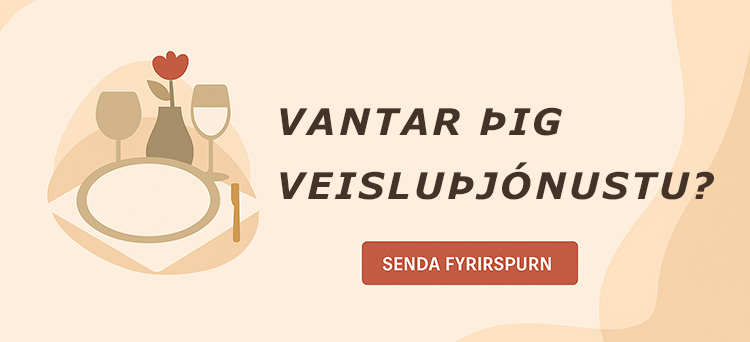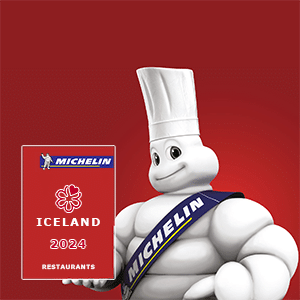Lifid
Who will be the restaurant stars of tomorrow?
Who will be the restaurant stars of tomorrow? We ask five top chefs to name their heirs apparent, while Mark Porter takes a look at the history of the trainee chef, from ancient Babylon to Le Gavroche
In the mid-Sixties when the British idea of gastronomy was prawn cocktail, steak and Black Forest gateau, a tiny cell of culinary missionaries stealthily established itself in the nation’s capital. As diners washed down an unsavoury diet with unsavoury wine, this dedicated hardcore of messianic foodies set about revolutionising a people to whom sophistication was very much a foreign country.
The ringleaders were the great Roux brothers, Albert and Michel, a fanatically committed pair of Frenchmen whose avowed aim was to suppress all forms of food heresy and to convert a nation of barbarians into gourmets – a task whose enormity would have made even the members of the Society of Jesus blanch.
But succeed they most certainly did. Now, nearly 40 years after Le Gavroche opened its doors in 1967, Britain competes with France when it comes to good restaurants. What made this spectacular conversion possible was the dedication of the brothers’ disciples – those who learned their craft in the Gavroche kitchens in London’s Mayfair, and then went forth and spread the gospel.
The number and quality of protégés nurtured by Le Gavroche is legendary. Gordon Ramsay and Marco Pierre White both learned their trade there; others include Pierre Koffmann, Marcus Wareing and Rowley Leigh. Indeed, almost anyone who is anyone in modern British food is in some way connected with the frères Roux. Otherwise, they are likely to have something to do with that other great French master of the British scene, Oxfordshire-based Raymond Blanc, who has helped the careers of world-beaters like Richard Neat, John Burton Race, Bruno Loubet and many others.
Since time immemorial, chefs have learned their craft under the tutelage of such masters. Indeed, the history of apprenticeships goes back to Egypt and Babylon in the 18th century BC where, under the Code of Hammurabi, sixth king of the Amorite dynasty of Babylon, artisans were required to teach their crafts to the young.
The relationship of master and apprentice thrived during the Roman Empire, when most cooks were slaves, a fact that would tempt many a commis chef to mutter ‘plus ça change’ today. During the Middle Ages, craft guilds emerged. An apprentice would train for seven years under a master craftsman before setting up on his own, and would later pass his knowledge on to the next generation.
‘Culinary training evolved through the concept of apprenticeship, it was the key to where we are today,’ says Jean-Marc Villard, who runs the famous Ecole des Arts Culinaires near Lyon, an institution that is itself closely linked to the name of French gastronomic legend, Paul Bocuse. ‘Great chefs have always embraced their role as transmitters of tradition and savoir faire,’ Villard explains. ‘Just as master masons, for example, have also done.’
Despite the long history of apprenticeship, the Britain that Roux and Blanc encountered was bleak, in terms of cuisine. There was no tradition of training chefs at top restaurants, because there simply weren’t any top restaurants. No one on the Continent was interested in training Brits, either. It would have been like Oxbridge colleges suddenly admitting GCSE students. A whole culture had to change before there was any chance of making an impact.
‘I came to this country to open a restaurant. It was a mission really, almost like a priest or a monk,’ says Michel Roux Sr, proprietor of The Waterside Inn and co-founder of the Roux Scholarship to promote the development of young chefs. ‘My goal was to change the meaning of food in Britain. In the UK in 1967 to talk about food was bad manners. You didn’t talk about food or sex. But now we talk about food and sex very freely.’
Steve Drake, the Roux Scholarship winner in 2001, is on his way up. Now 30, in mid-January he is launching his own restaurant in Ripley, Surrey, as chef-patron. He was apprentice to Nico Ladenis when he was 17, then worked for Marco Pierre White and Tom Atkins before a spell with Marc Veyrat at the three-Michelin-starred Auberge de l’Eridan in Annecy, France. One day he would like his name to be as synonymous with cuisine as Michel Roux – an ambition not uncommon in the competitive world of cooking. But he gives full credit to his other mentors. ‘I’ll always be indebted to Nico; he was like a father figure. Nico started me: like one of your first teachers at school, you always have that memory.’
Roux himself estimates that only 20 per cent of chefs on the Continent are self-taught, while in Britain there are perhaps twice as many. This is, he believes, because the tradition of training chefs through apprenticeship is that much newer. He warns about the short cuts that can tempt young cooks, and stresses that they must learn to walk before running. ‘They all want to be a Jamie Oliver,’ he says, ‘but what they forget is Jamie Oliver is an entertainer, not a chef!’
The influence of the architects of French haute cuisine can still be felt because of this system of tutelage. Chefs like Peter Eaton (via Blanc) and Steve Drake (via Roux) are the direct descendants of the great classical French gastronomes like Antonin Carême and Jean-Anthèlme Brillat-Savarin. It is, to some extent, thanks to the efforts of the Roux brothers and Raymond Blanc that Britain has moved on from Marie Rose sauce, chips and ketchup to a land fit for a Frenchman to visit.
The Master
Michel Roux sr
Age: 62;
CV: Spent his early years in Paris. Went on to found the Roux Scholarship with his brother, Albert.
‘I came to this country in 1967: the dark ages for British food. And there was no opportunity for British chefs to go and work in top restaurants on the Continent. Someone had to be there to push them. Five Roux Scholars have a Michelin star. Steve is one.’
The Apprentice
Steve Drake
Age: 30;
CV: Chef-patron at Drake’s Restaurant, won a Roux Scholarship in 2001.
‘It really matters who is in the kitchen, or whose kitchen you’re in. When I was at The Oak Room with Marco he was in the middle of setting up the Mirabelle. I had six months with him and then he left. After that, it just wasn’t as exciting.’
The Master
Raymond Blanc
Age: 54;
CV: Self-taught, trained 19 of Britain’s Michelin-starred chefs at his restaurant, Le Manoir aux Quat’ Saisons.
‘I’m not interested in egos, chefs that are prima donnas, and all of that. I want to give back respectability to the industry. London has created a terrible culture in the kitchen. Violence and verbal abuse should be banned – it is not a sweatshop. We are here to train young people and make them ready to confront all the obstacles.’
The Apprentice
Peter Eaton
Age: 25;
CV: Senior sous chef at Le Manoir.
‘Monsieur Blanc is one of the few big-name chefs you still see in the kitchen. He’ll give you a bit of knowledge just by tasting something you’ve made.’
Craig Harnden
Age: 28;
CV: Senior sous chef at Le Manoir.
‘After your first year at Le Manoir you get to come in for dinner, have the Gourmand menu and stay in one of the best rooms. You get to see what you’ve been doing from the other side.’
The Apprentice
Lora Kirk
Age:27;
CV: Chef de partie at The Connaught.
‘I wouldn’t come to work every day if I didn’t like Angela, if she didn’t give me her time and show me stuff. There wouldn’t be any point for me to come in and be slave labour. It has to be more than just a pay cheque.’
The Master
Angela Hartnett
Age: 34;
CV: Started in a Cambridge pub, worked with Gordon Ramsay and is now behind The Connaught’s menu.
‘What I like about Lora is she’s very calm. She can run a smooth service but she can also get the most out of someone, even the most trying. And believe me, that girl has had the most trying staff. You do feel people respond to her, which is a good sign of someone who might be able to run a kitchen in the future.’
The Master
Vivek Singh
Age: 32;
CV: Worked at the five-star Rajvilas Hotel in Jaipur, India, and came to England to open The Cinnamon Club as executive chef.
‘Hari and I worked together at Rajvilas before coming here. He was as green as green gets – just a few months out of college. He used to get stuck in and do the job. He was willing to take on more than his contemporaries, and was always a couple of notches above the rest.’
The Apprentice
Hari Nagaraj
Age: 28;
CV: Born in Hyderabad, India, sous chef at The Cinnamon Club.
‘Vivek gives a free hand to everybody and lets them try their own stuff. That’s very motivating. He keeps people excited and thinking about the food they are working on. He makes people passionate and proud to be at The Cinnamon Club.’
The Apprentice
Ashley Watts
Age: 25;
CV: Head chef at The Fat Duck, Bray.
‘From Heston, it’s the continual push of finding something better. Looking at an end result, a lot of people would say: ‘That’s great. I love that. It’s brilliant.’ And it stops there. But Heston looks at ways of taking it that stage further. It’s that continual drive that makes working with Heston unique.’
The Master
Heston Blumenthal
Age: 37;
CV: Self-taught, highly acclaimed chef patron of The Fat Duck.
‘I think it’s important to get in the right place in the formative years to develop as a person as well as a chef. We’ve got a really good working relationship, and there’s a lot of trust there as well. We also like the same things. Last Christmas, I rented a farmhouse in Cornwall and Ash came down for a few days and we just cooked. We both do this job for the love of it.’

-
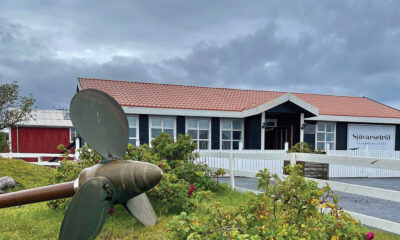
 Viðtöl, örfréttir & frumraun4 dagar síðan
Viðtöl, örfréttir & frumraun4 dagar síðanEigandi Sjávarsetursins gagnrýnir harðlega meintan mismun Suðurnesjabæjar á fyrirtækjum – Uppfært
-

 Markaðurinn4 dagar síðan
Markaðurinn4 dagar síðanÁsbjörn Ólafs flytur í glæsilegt húsnæði og blæs til umfangsmikillar lagersölu
-
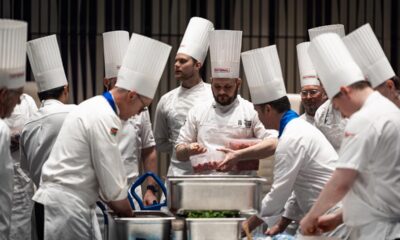
 Viðtöl, örfréttir & frumraun1 dagur síðan
Viðtöl, örfréttir & frumraun1 dagur síðanMyndaveisla frá hátíðarkvöldverði Klúbbs Matreiðslumeistara 2026
-
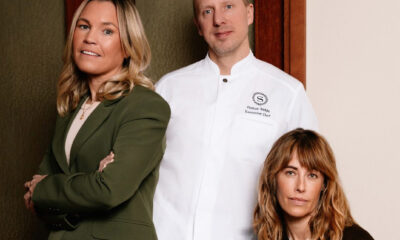
 Nýtt bakarí, veitingahús, fisk- og kjötbúð og hótel3 dagar síðan
Nýtt bakarí, veitingahús, fisk- og kjötbúð og hótel3 dagar síðanNý matreiðslustefna á Sheraton – Mr. Bronck opnar í mars
-
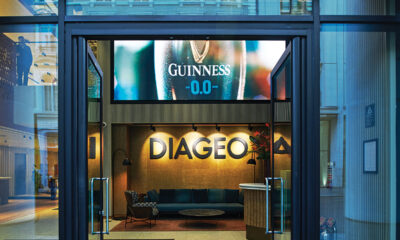
 Vín, drykkir og keppni5 dagar síðan
Vín, drykkir og keppni5 dagar síðanDiageo losar um eignir – Kína ekki lengur forgangsmarkaður
-

 Frétt23 klukkustundir síðan
Frétt23 klukkustundir síðanTilkynning frá Suðurnesjabæ vegna umfjöllunar um Sjávarsetrið
-

 Viðtöl, örfréttir & frumraun3 dagar síðan
Viðtöl, örfréttir & frumraun3 dagar síðanStóra veislusýningin í Múlabergi
-
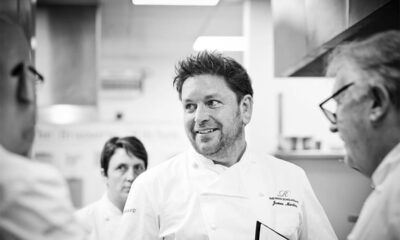
 Viðtöl, örfréttir & frumraun2 dagar síðan
Viðtöl, örfréttir & frumraun2 dagar síðanSjónvarpskokkurinn James Martin tapar í vörumerkjadeilu


